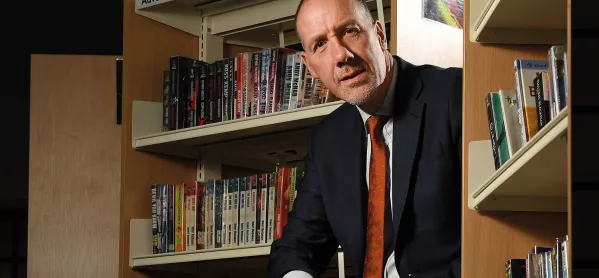It is worth pointing out - writing, as I am, at the end of a highly charged political week - that we need to shift away from divisive language and policies, and that this arguably matters more in education than in any other sphere of public life.
And it’s important to look at this urgently. Fresh from the fireworks (some of which undoubtedly misfired) of Labour’s conference last weekend, we now have the prospect of the Conservative Party’s in Manchester. It’s hard to know - in these rather unprecedented circumstances - quite who will be there and what they might say. But, whoever it is, a glance at the conference agenda makes the heart sink.
The opposing view: ‘I want free schools to help other schools’
Background: Boris Johnson’s drive to set up more free schools
Opinion: Teachers: do not be afraid of ‘calling out’ Boris
On Monday morning there is - inevitably - a session entitled “Creating a world-class education system”. We are told this will involve a presentation and a short speech by the secretary of state for education “on the free schools movement and its success in raising educational standards across the country”.
Why is this dispiriting?
Because once again we will have to endure the government extolling the virtues of one type of school over another, in a way which is at best irritating and at worst insulting to all the other successful schools of different types.
Endlessly, it seems, despite all our knowledge that tinkering with structures takes us into an educational cul-de-sac, we simply cannot let go of the notion that the way we structure schools is a panacea.
None of it is helpful.
When are we going to stop talking about different types of schools as though they are entirely divergent species from one another?
Because we really won’t create a world-class education system by obsessing about structures and the bewilderingly arcane processes which surround them. Instead, we will do it by making sure that we have a curriculum and qualifications that work for all our students, by giving our schools and colleges the funding they need, and by securing a pipeline of high-quality teachers and leaders.
It really doesn’t need to be much more complicated than that.
Whether schools are academies or maintained or free schools isn’t the central issue. The difference is made by what we teach and how we teach it, and any type of school can do this if the conditions are right.
Of course the free schools movement - as represented by the New Schools Network - will tell us that free schools are beacons of excellence.
And this leads us into a tit-for-tat swapping of statistics between free school advocates and opponents which gets us nowhere.
A case in point was a press release from the Department for Education this week that declared: “Free schools in England are helping give six- and seven-year-olds the basic skills they need for future success, as they outperform other types of school for the fifth year in a row.”
There is so much to dislike about this press release that it is hard to know where to begin - the desperate dicing and slicing of data to cheerlead a government policy, the denigration of other types of school, the fact that the whole thing is pinned around a screening check of very young children which is of questionable value.
I’m assuming that all of this means we are heading for some sort of announcement about free schools at the Conservative Party conference, doubtless expressed in a breathless rhetoric of excitement.
It would be so refreshing to leave these days behind. Let’s stop obsessing about school structures; let’s stop arguing about the merits of one type of school against other types of school; let’s stop endlessly tinkering with the mechanisms that have become far too important in our atomised education system.
And instead let’s focus on celebrating the many successes of all our schools of all types, put our agendas aside and work collectively to overcome the challenges.
Geoff Barton is general secretary of the Association of School and College Leaders




